Logic games are a great way for kids to enhance their problem-solving skills, critical thinking, and creativity. More than just fun, these games play a significant role in helping children develop essential life skills like patience, perseverance, and strategic thinking. Whether they’re trying to crack puzzles or figure out solutions to complex problems, logic games help train young minds in a way that traditional learning sometimes can’t, instilling confidence in parents about the benefits of these games.
In this blog, we’ll explore the best logic games for kids that are both engaging and highly educational. These games, while providing hours of entertainment, are designed to help sharpen your child’s cognitive skills, ensuring that they are learning while having fun.
1. Chess

Recommended reading: Engaging Geography Lessons Games for Kids to Learn the World
Chess, a game that requires players to anticipate their opponent’s moves, challenges players to think ahead, strategize, and develop focus. For kids, chess offers an opportunity to develop foresight and problem-solving skills. Many schools even offer chess clubs to foster these abilities early on.
Benefits:
- Enhances strategic thinking.
- Improves memory and concentration.
- Teaches patience and sportsmanship.
Recommended Age: 6+
Place to buy this game: Amazon
2. Sudoku

Recommended reading: Explore the Fascinating History of Video Games for Kids
Sudoku is a classic number puzzle game that not only tests logic and concentration but also provides educational benefits. It involves filling a grid with numbers so that each row, column, and box contains the numbers 1 to 9 without repeating. While it may seem like simple math, Sudoku is more about recognizing patterns and using logic to fill in the blanks.
Benefits:
- Improves attention to detail.
- Boosts problem-solving and reasoning skills.
- Develops persistence and logical thinking.
Recommended Age: 8+
Place to buy this game: Amazon
3. Tangrams
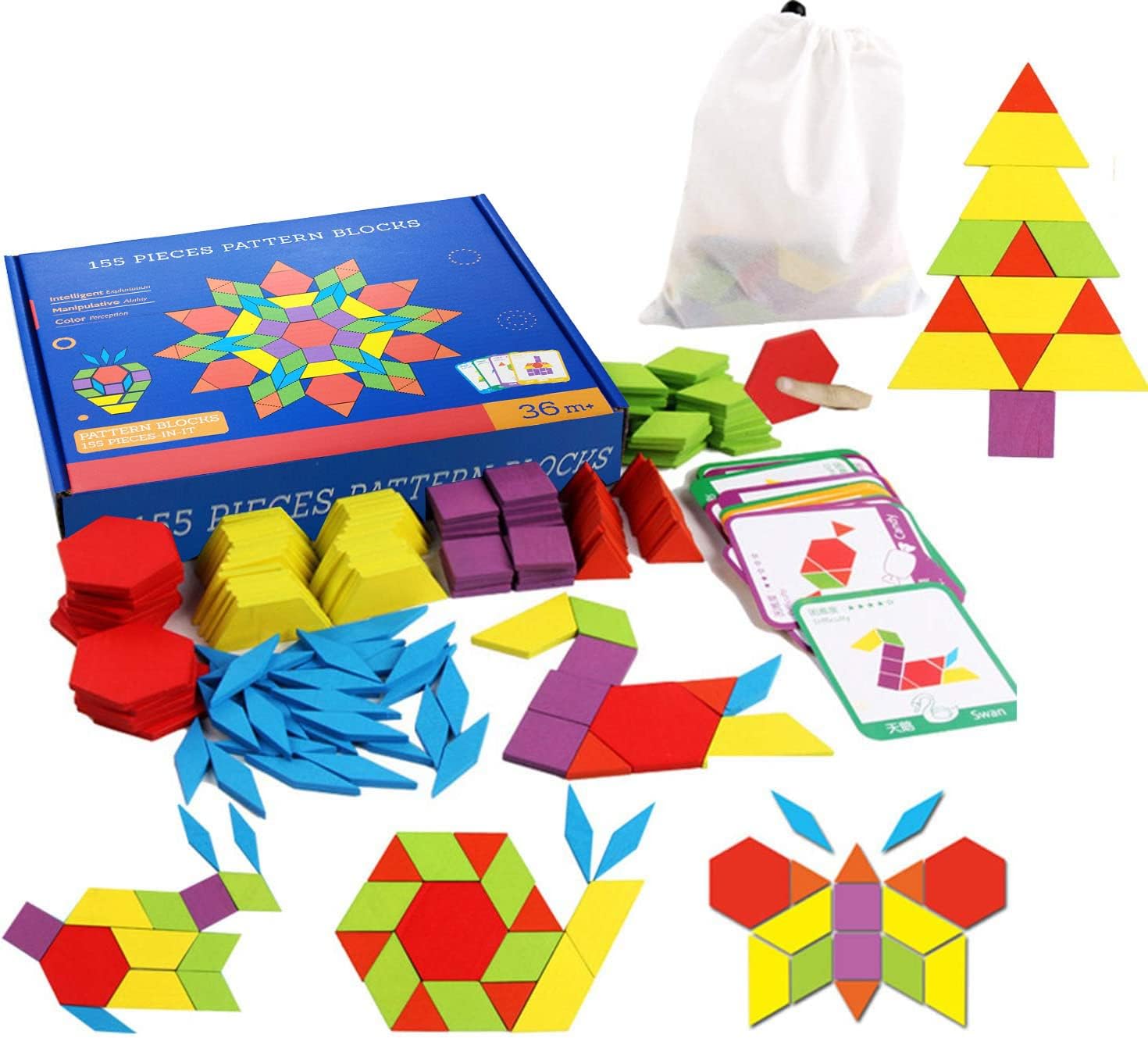
Recommended reading: Top 15 Typing Games for Kids to Improve Skills
Tangrams are geometric puzzles made of seven pieces that can be rearranged to form various shapes like a square, a triangle, or even a bird. While the game seems simple, it actually requires a lot of logical thinking to figure out how the pieces fit together. It’s perfect for young kids who enjoy hands-on activities and want to develop spatial awareness.
Benefits:
- Enhances spatial reasoning.
- Encourages creative problem-solving.
- Improves visual recognition and motor skills.
Recommended Age: 5+
Place to buy this game: Amazon
4. Maze Games
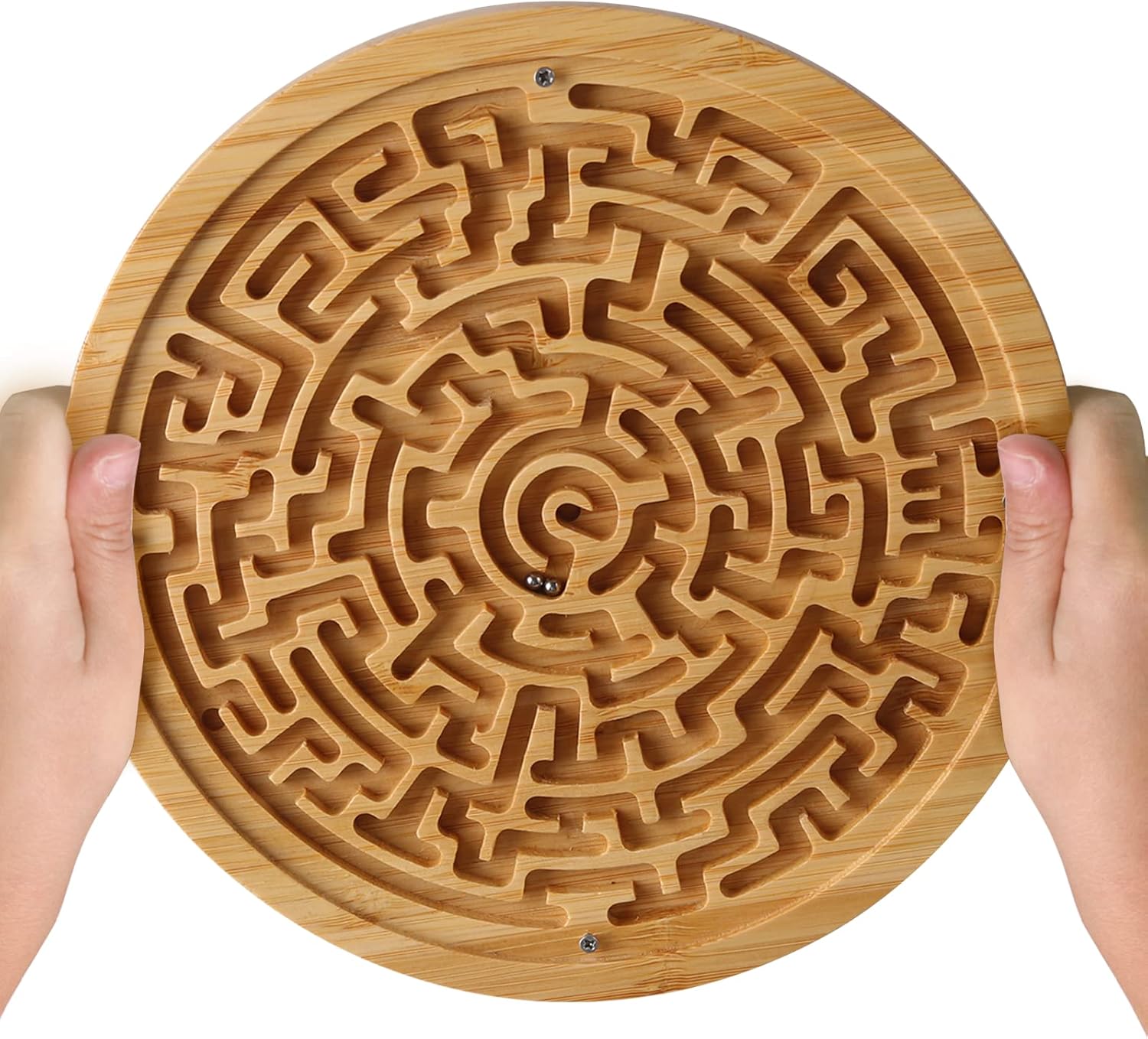
Maze games come in many forms, from printed puzzles to interactive digital versions. They involve navigating through a maze from start to finish, which challenges a child’s ability to think ahead and plan their moves. Maze games can be simple or highly complex, making them suitable for kids of all ages.
Benefits:
- Strengthens decision-making skills.
- Teaches perseverance and patience.
- Encourages forward-thinking and planning.
Recommended Age: 4+
Place to buy this game: Amazon
5. Rubik’s Cube
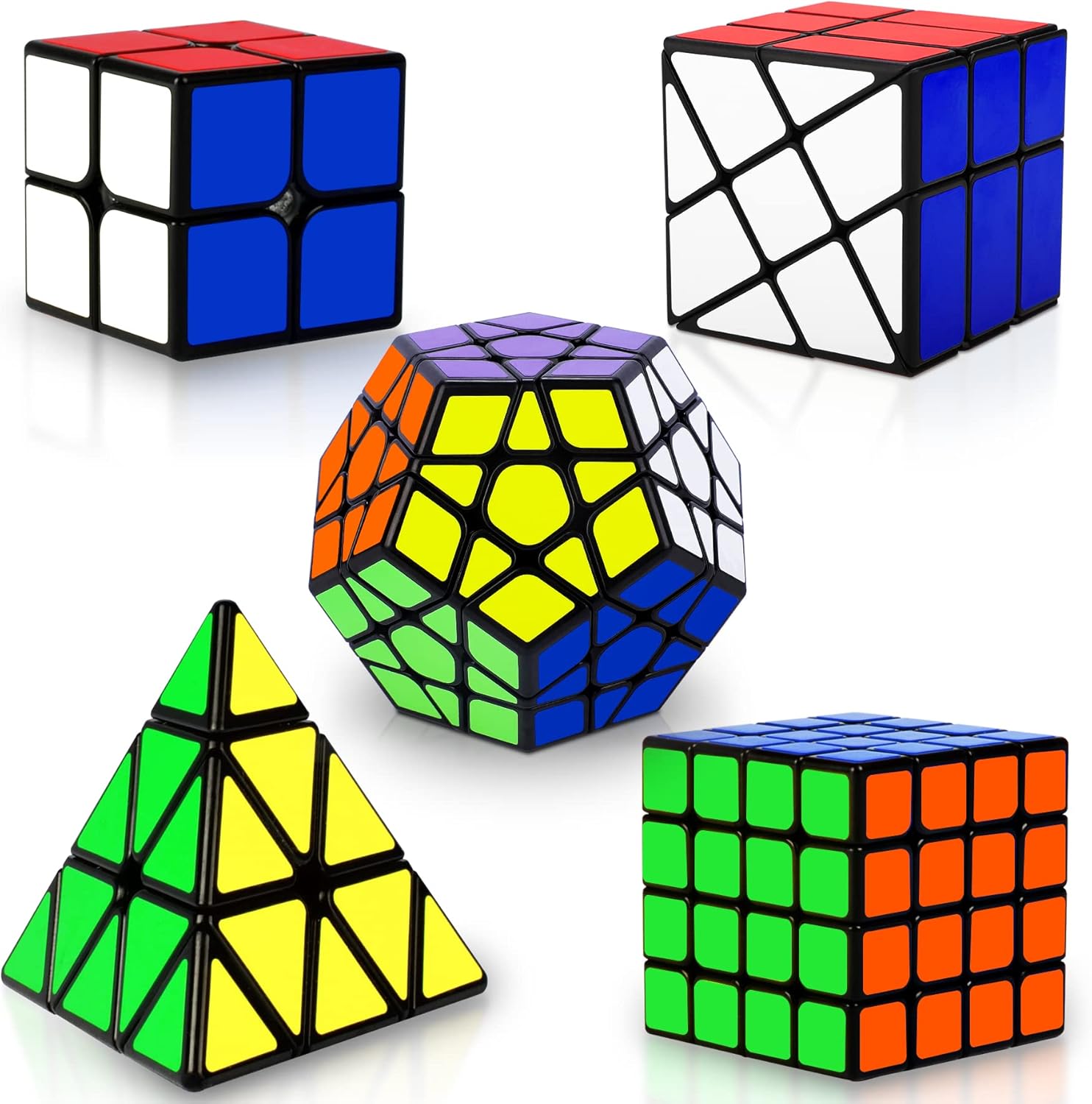
Recommended Reading: 10 Fun & Educational Artificial Intelligence Games & Activities for Kids
The Rubik’s Cube is a timeless 3D puzzle that challenges kids to match colors on each side of the cube. Solving a Rubik’s Cube requires a strong understanding of algorithms and spatial reasoning. While it can be difficult at first, the feeling of accomplishment after solving it is gratifying.
Benefits:
- Improves spatial awareness and hand-eye coordination.
- Teaches patience and determination.
- Encourages algorithmic thinking and strategy.
Recommended Age: 7+
Place to buy this game: Amazon
6. Rush Hour

Recommended Reading: Play And Learn Engineering Educational STEM Games
Rush Hour is not just a logic game; it’s a fun, traffic-themed adventure in which players must slide cars around on a grid to free a trapped vehicle. Each level becomes progressively more difficult, but it’s all part of the fun, encouraging kids to think critically about their moves. It’s a great way to develop planning and problem-solving skills in a way that kids will find engaging and enjoyable.
Benefits:
- Enhances critical thinking and planning.
- Promotes patience and strategic foresight.
- Encourages perseverance through trial and error.
Recommended Age: 6+
Place to buy this game: Amazon
7. Codenames
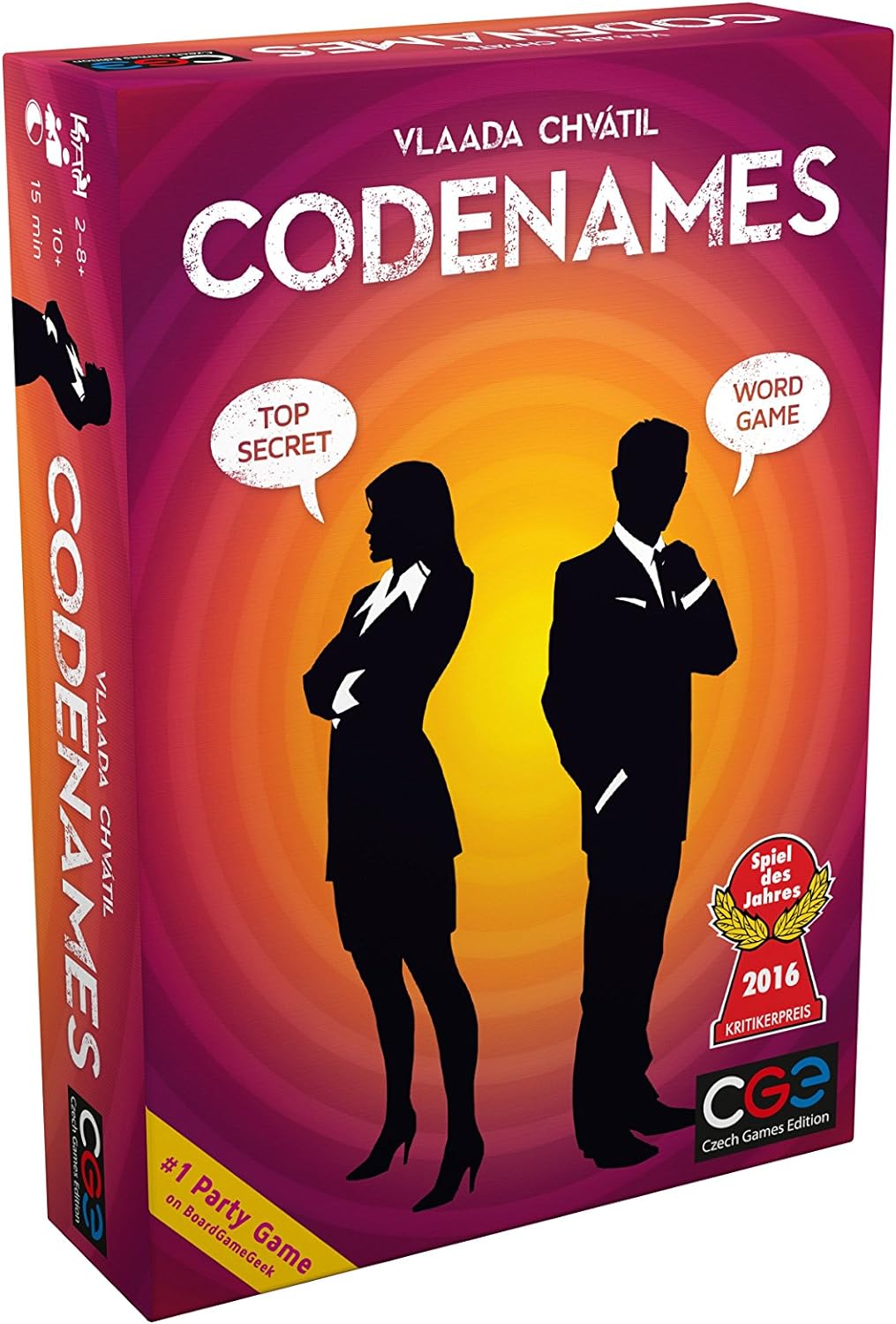
Codenames are not just games; they are word-based logic games that are perfect for older kids. In this game, two teams compete to figure out the words their spymaster is hinting at. It’s a great mix of vocabulary building and logical deduction, making it ideal for kids who love solving mysteries or puzzles. It’s more than just a game; it’s a tool for learning and development.
Benefits:
- Develops teamwork and communication skills.
- Improves vocabulary and word association.
- Encourages strategic thinking and logical deduction.
Recommended Age: 10+
Place to buy this game: Amazon
8. Mastermind
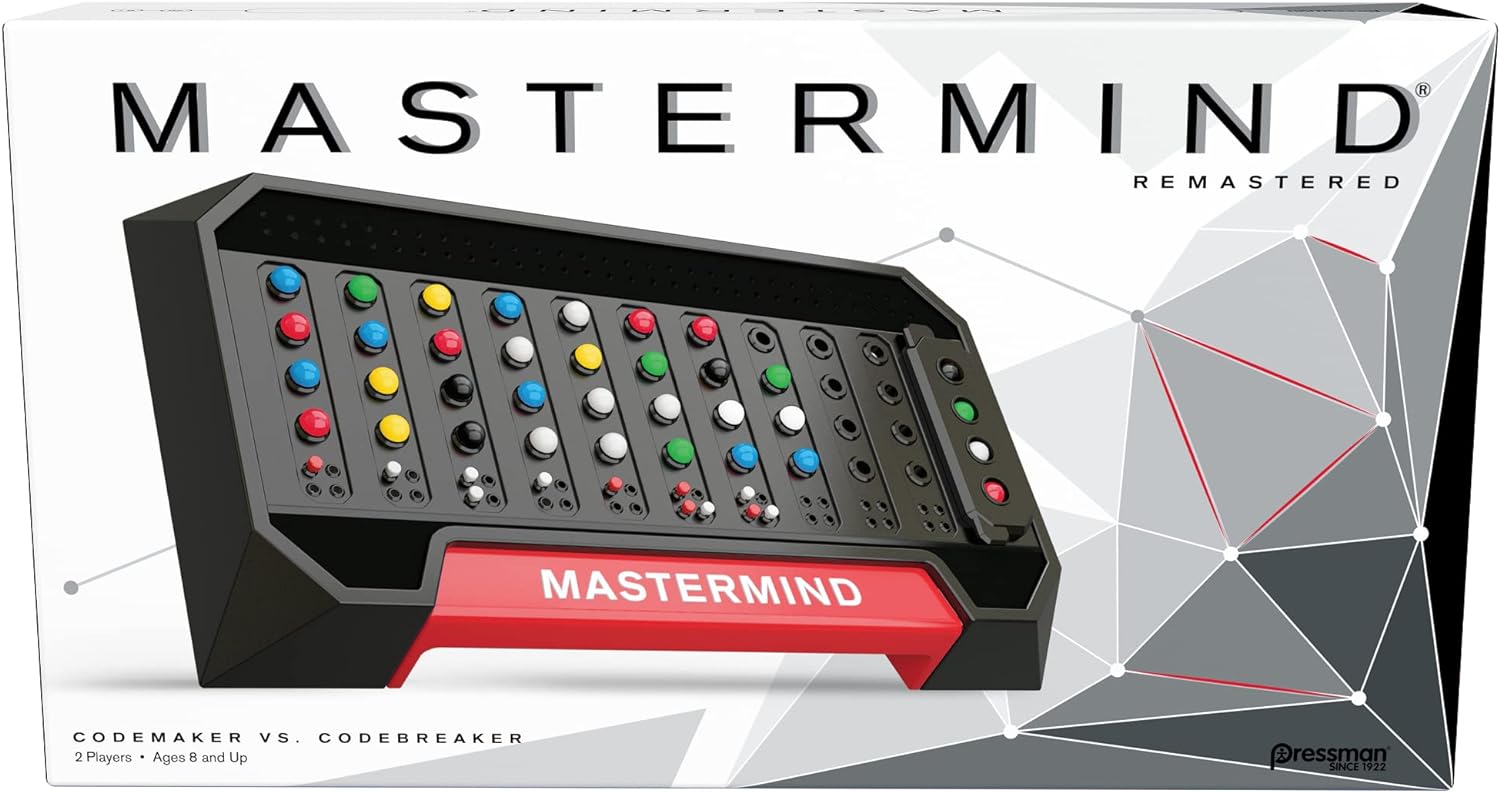
Recommended Age: 8+
Place to buy this game: Amazon
Mastermind, a classic code-breaking game, is not just a fun challenge for players, but also a valuable tool for kids to develop deductive reasoning and hypothesis testing. With each guess, the opponent’s feedback guides the player to refine their next attempt, making it an educational journey.
Benefits:
- Improves logical reasoning and pattern recognition.
- Teaches kids how to use feedback to improve.
- Develops analytical thinking and strategy.
9. Gravity Maze
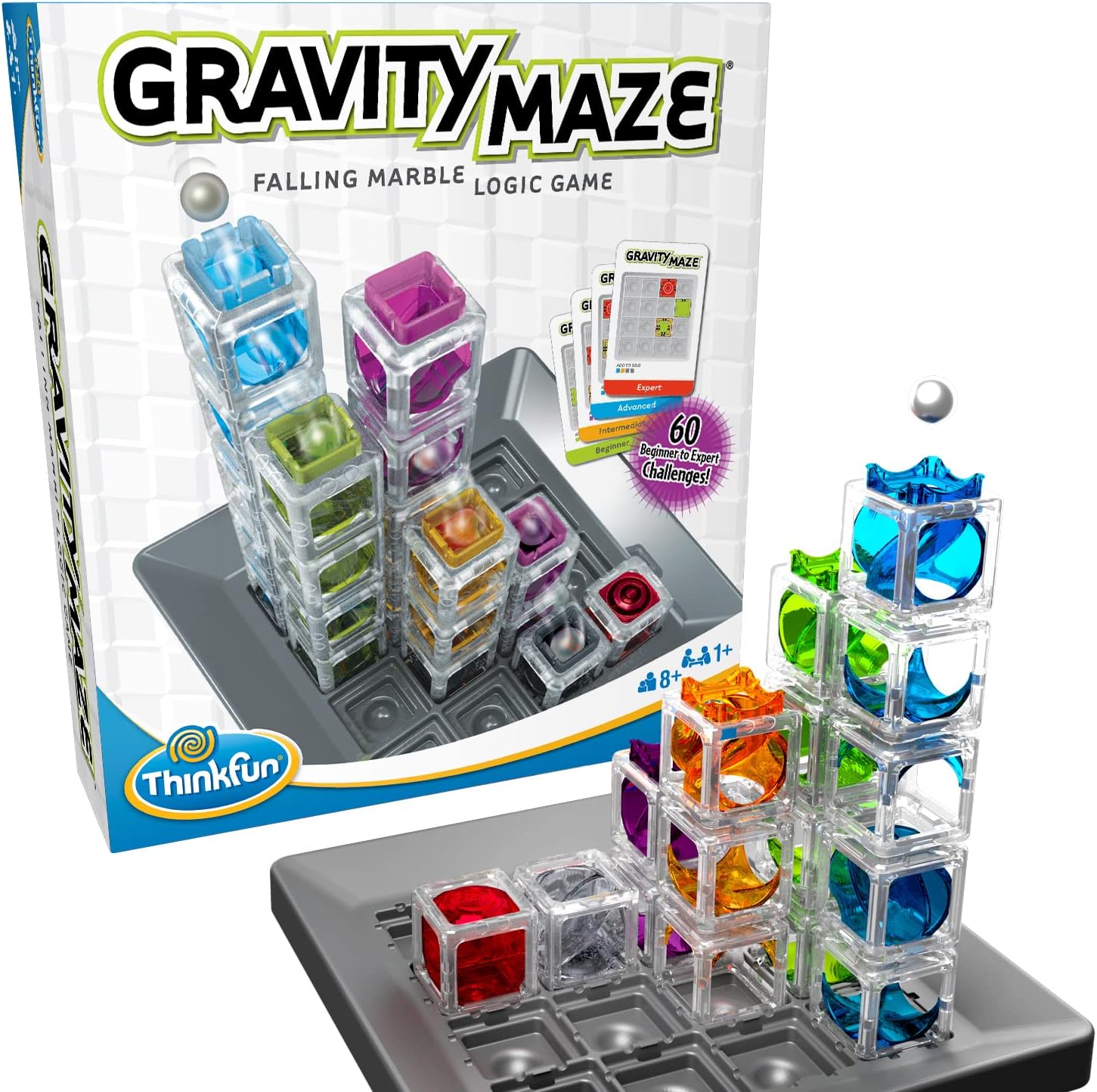
Gravity Maze, a logic game that uses a marble run, is a captivating challenge for kids as they design paths and guide the marble to a target point. The game’s unique blend of physical interaction and critical thinking ensures that it’s not just fun, but also intellectually stimulating.
Benefits:
- Enhances spatial reasoning and engineering skills.
- Encourages creative problem-solving.
- Teaches kids to visualize solutions before acting.
Recommended Age: 8+
Place to buy this game: Amazon
10. ThinkFun’s Laser Maze
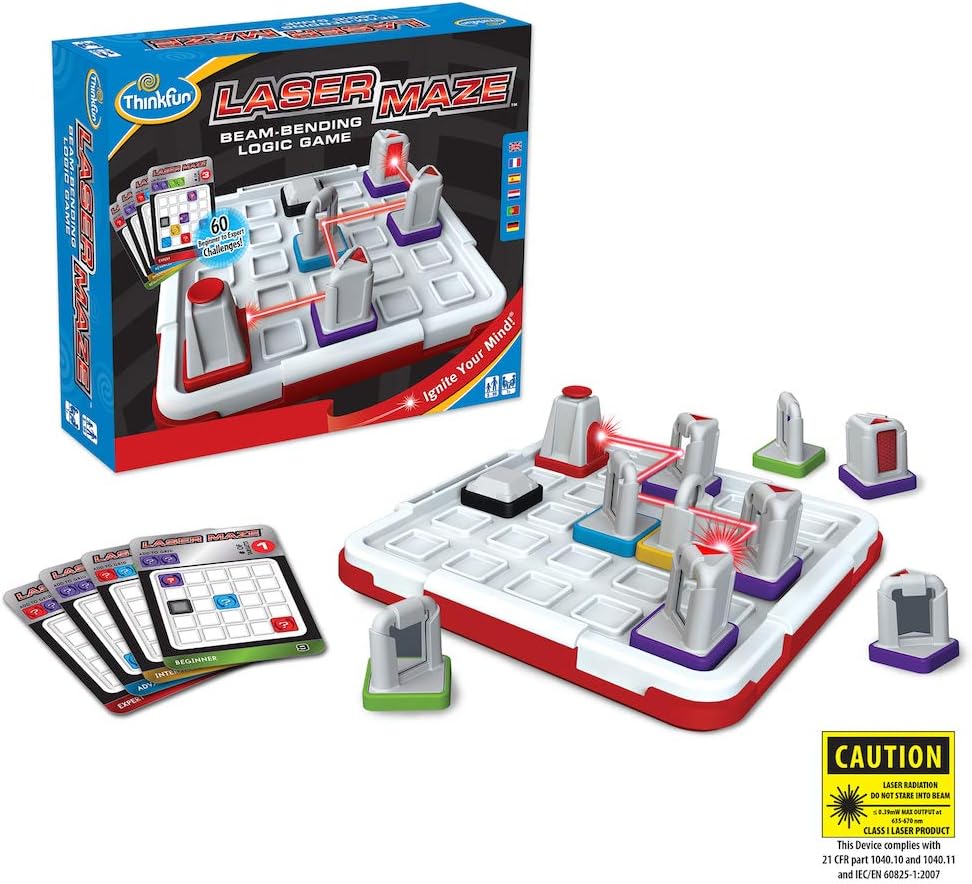
Laser Maze is a fun, futuristic game where kids use mirrors and beam-splitting tools to direct a laser to a target. It requires a solid understanding of angles and logic, making it an exciting way for kids to engage with science while developing their problem-solving skills.
Benefits:
- Enhances logical thinking and spatial reasoning.
- Encourages experimentation and innovation.
- Promotes STEM-related skills.
Recommended Age: 8+
Place to buy this game: Amazon
Conclusion
Logic games provide children with a fantastic way to exercise their brains while having fun. These games teach patience, strategic thinking, and problem-solving skills, all of which are valuable life tools. From chess to Rubik’s Cubes to interactive mazes, these games offer something for every child, ensuring hours of entertainment and learning.
By incorporating logic games into their daily activities, kids can develop more vital cognitive skills that will benefit them not just in school but in life. If you’re looking for ways to challenge and engage your child’s mind, these games are a great place to start!
Looking for a comprehensive parenting guide to ensure you are on the right track? Explore a wealth of parenting wisdom and educational insights in Moonpreneur’s blogs. Additionally, you can join our programs that nurture the next generation of innovators. Book a free trial now!


























I came across some of these games while browsing online, and they’re really as good as they sound. My nephew started with the Rubik’s Cube and got so hooked on the challenge. It’s awesome how these logic games help in building essential skills like problem-solving and concentration.
I noticed that some logic games like ‘Set’ and ‘Blokus’ are great for developing pattern recognition and visual perception skills. Are there any similar games you’d recommend for younger kids that focus on these areas?”
Games like “Qwirkle” and “Pattern Blocks” are perfect for younger kids to develop pattern recognition and visual-spatial skills. Qwirkle is simple yet engaging, involving matching colors and shapes, while Pattern Blocks help children understand geometric shapes and symmetry. Both games are fun and educational, making them ideal for younger kids!